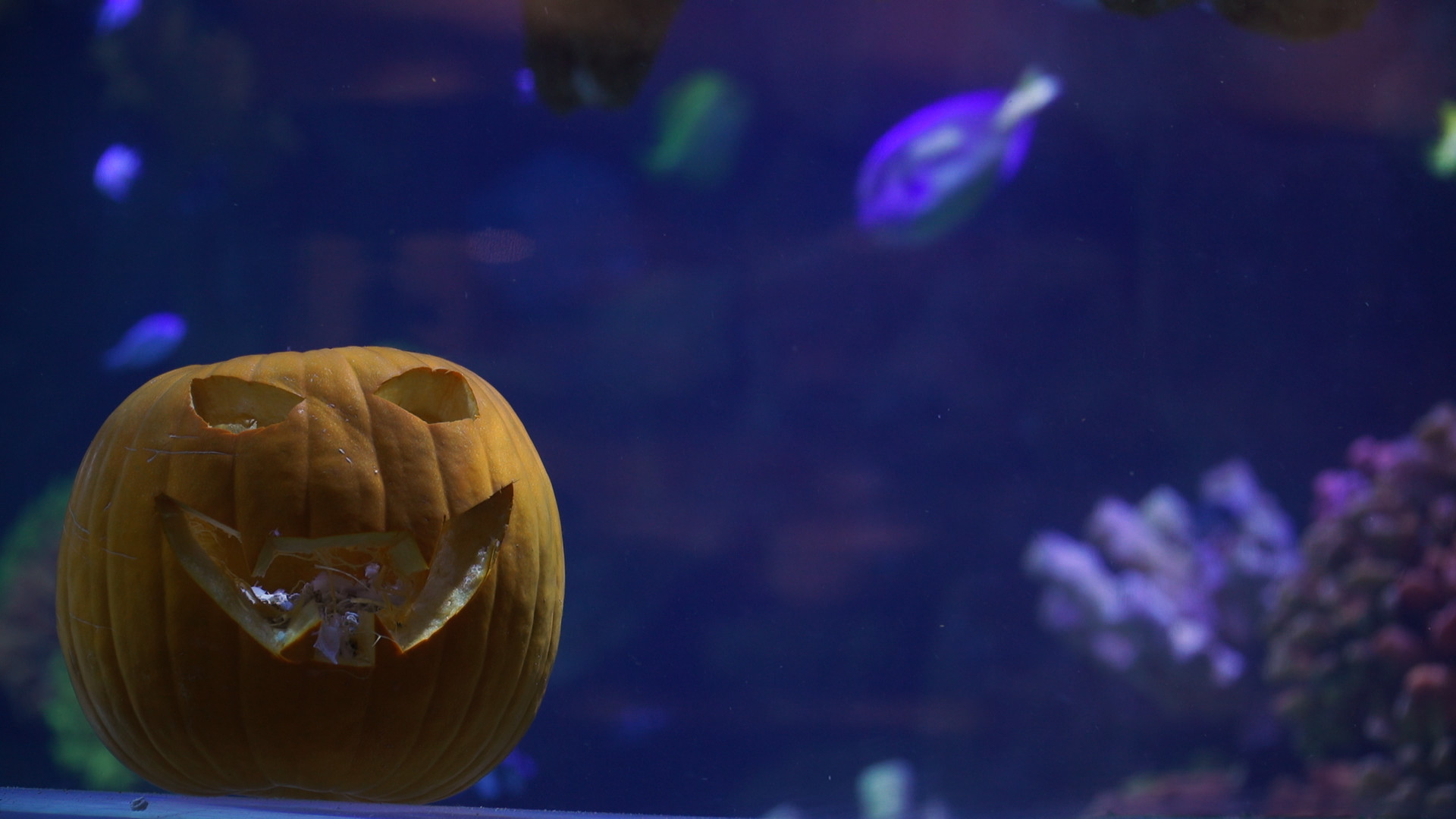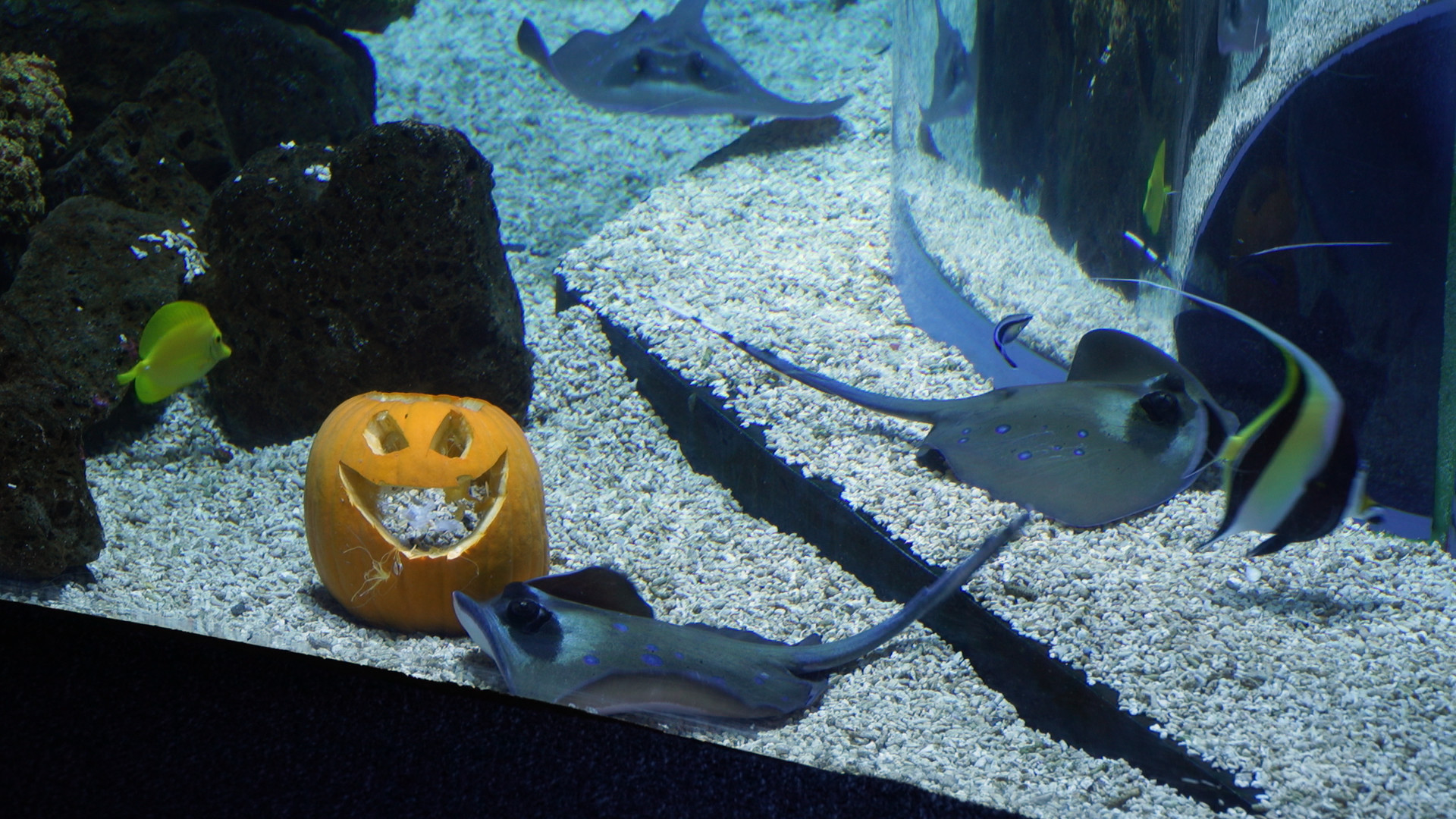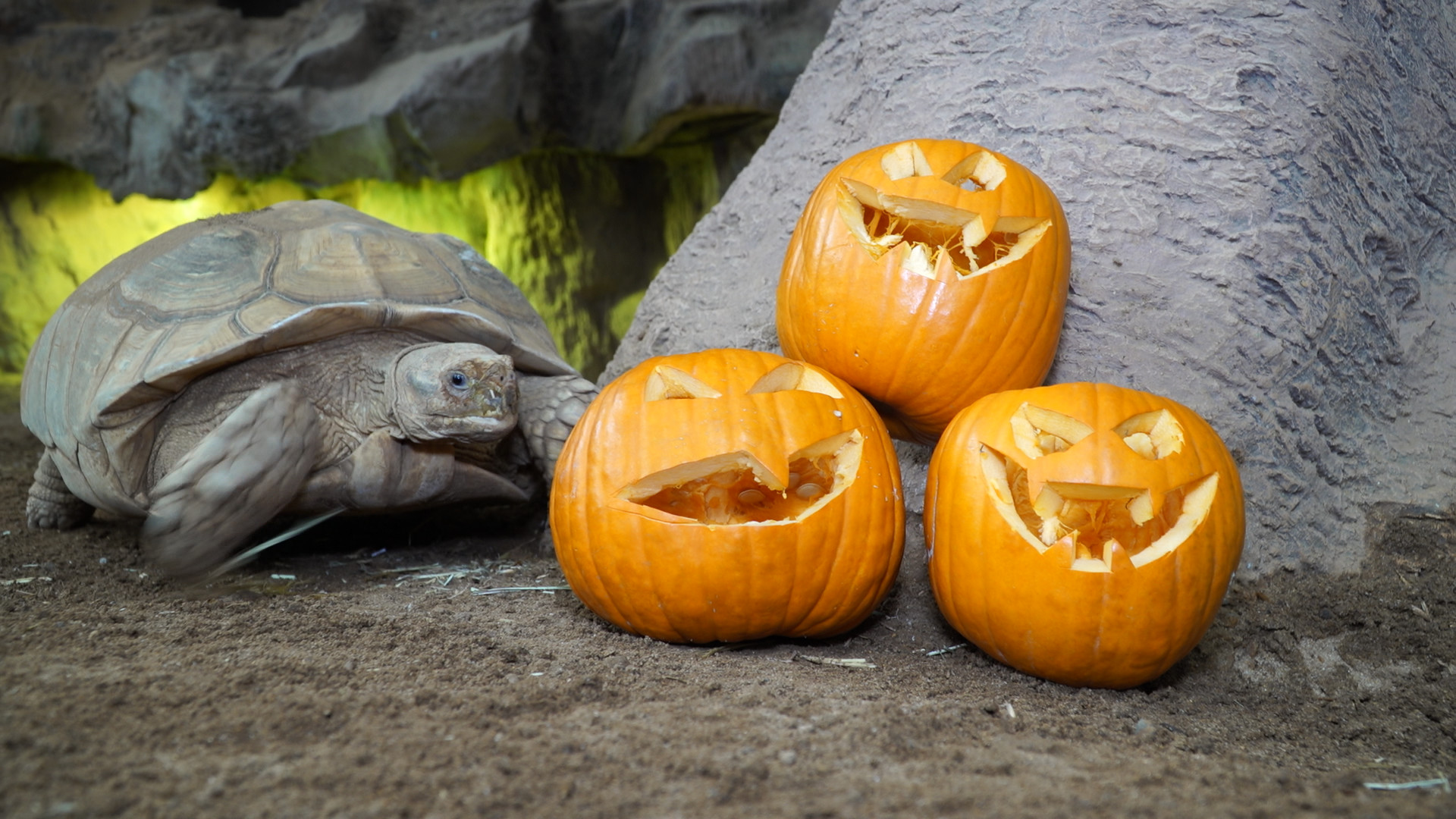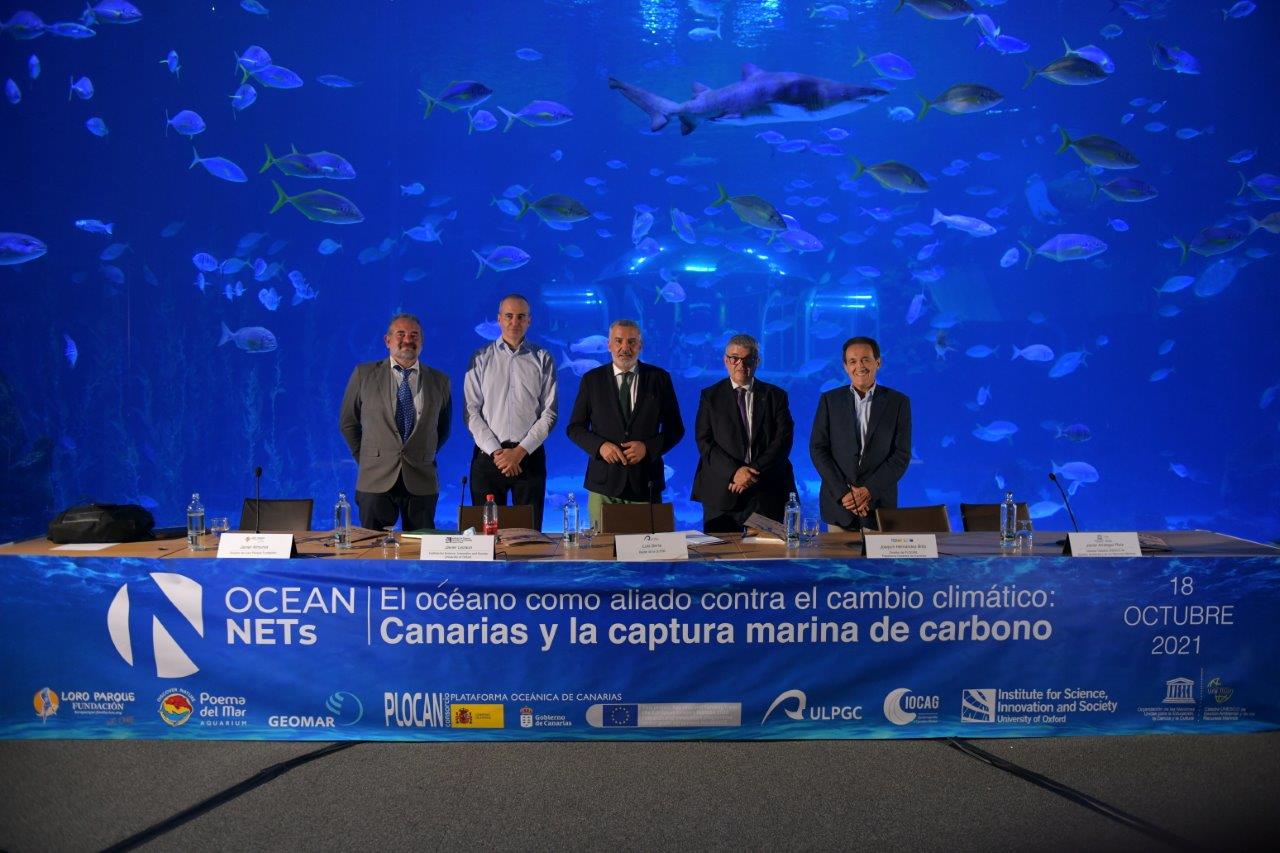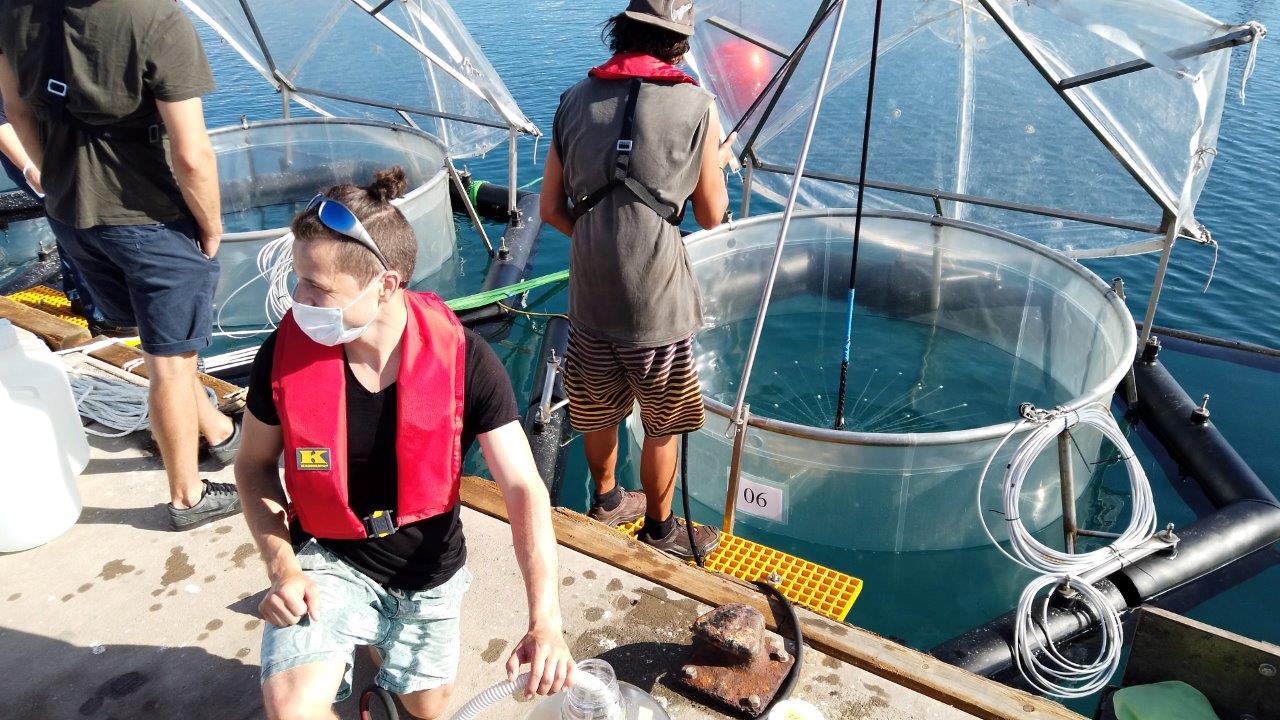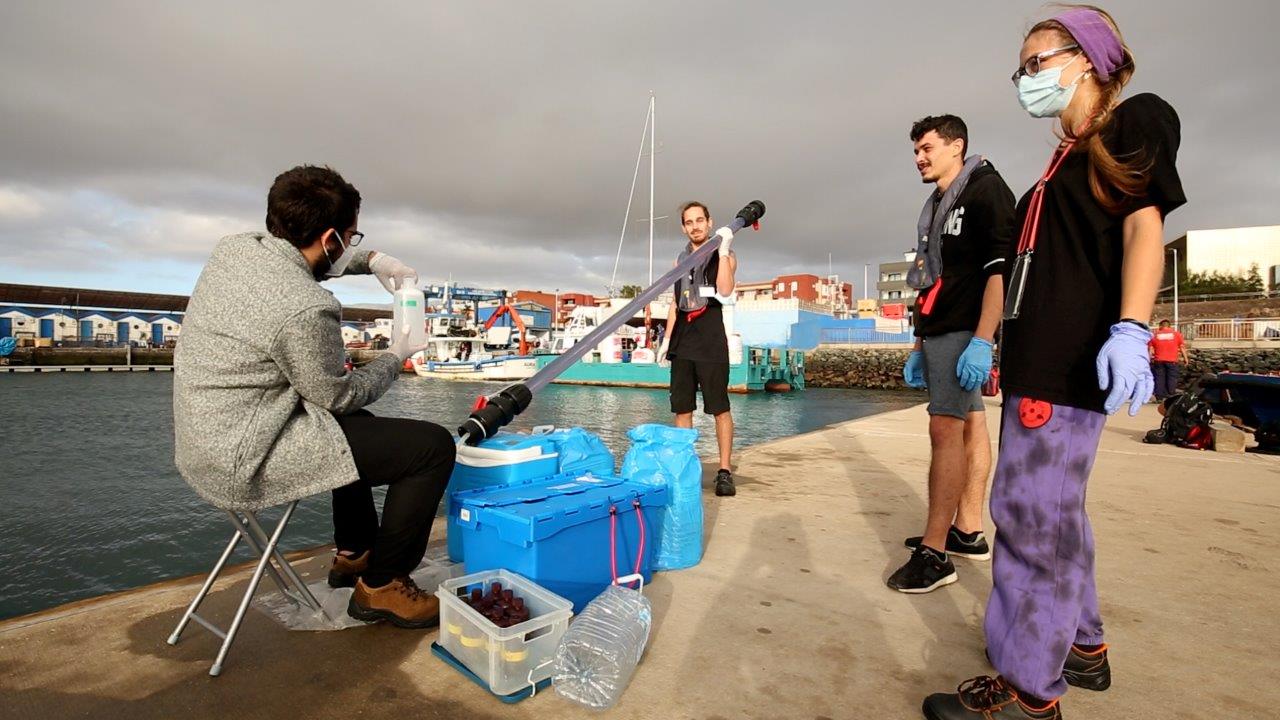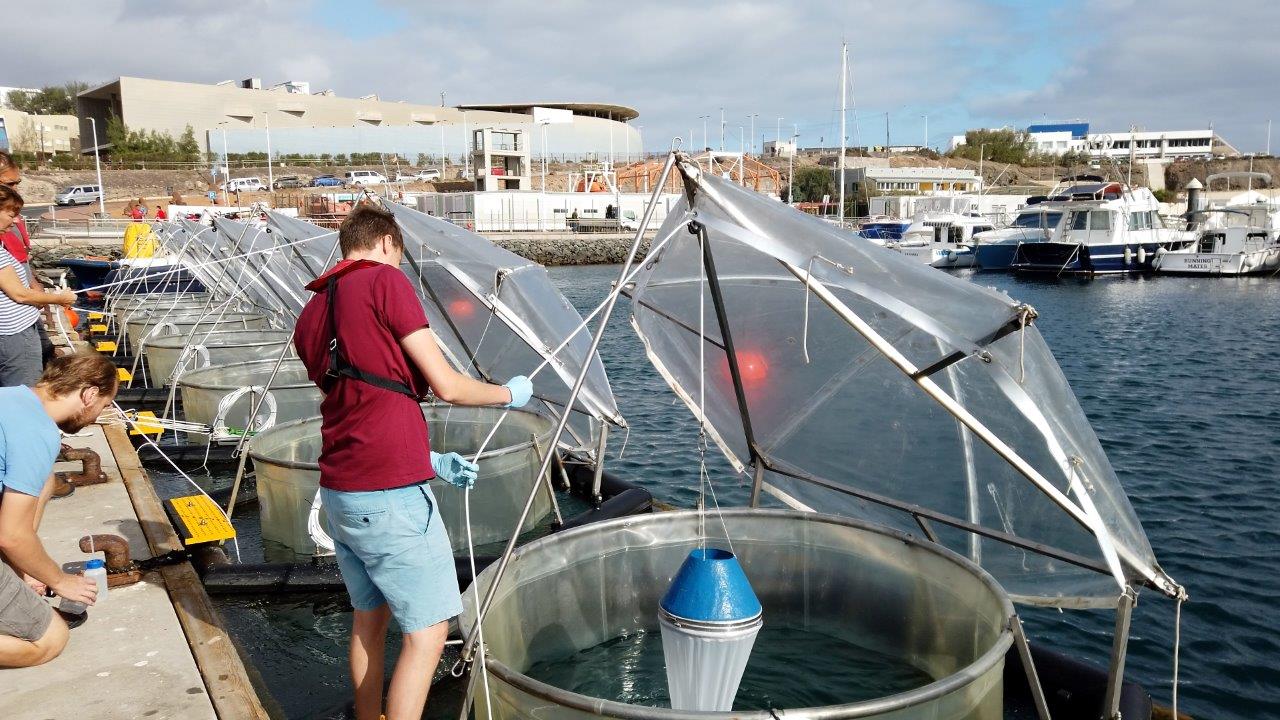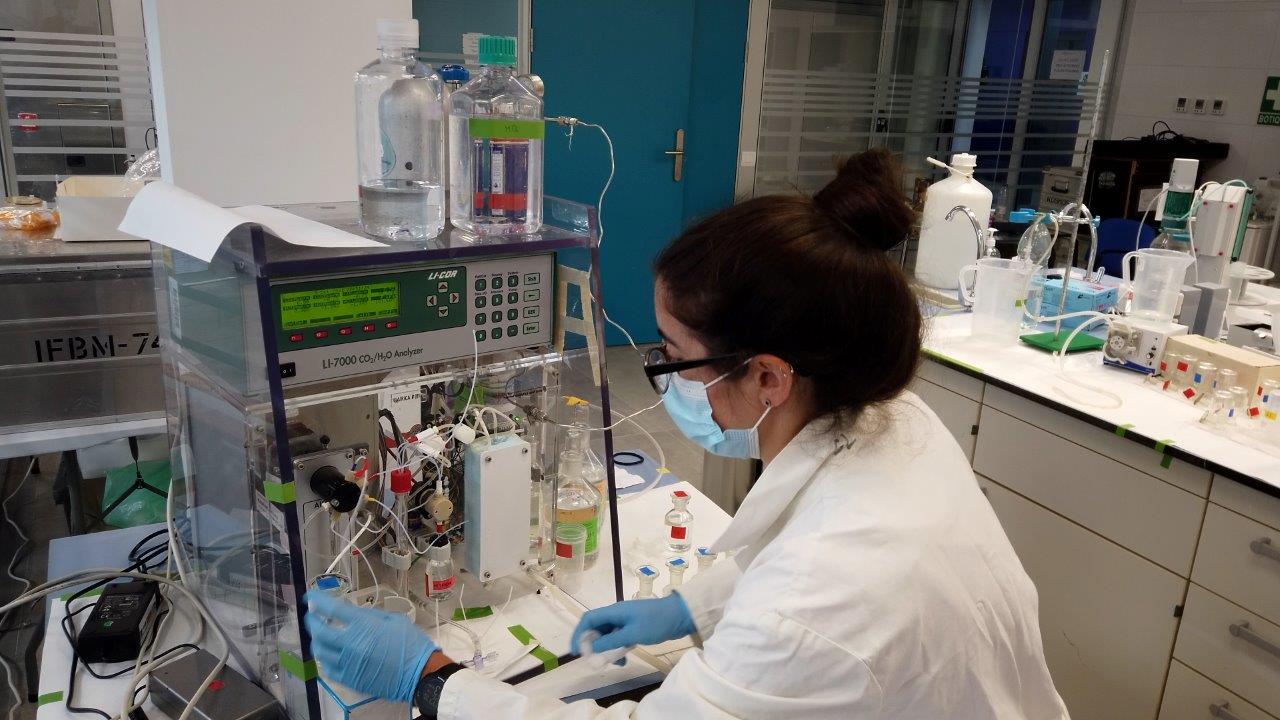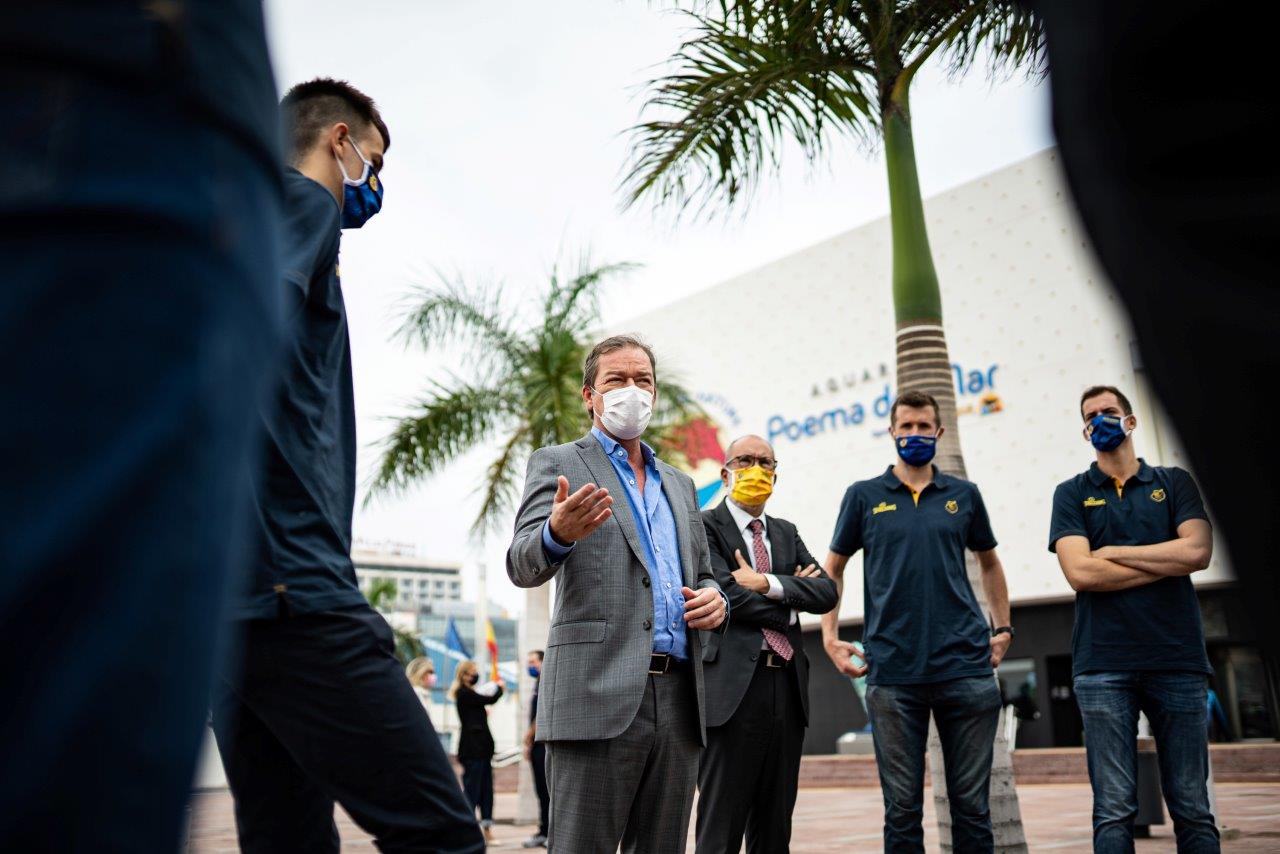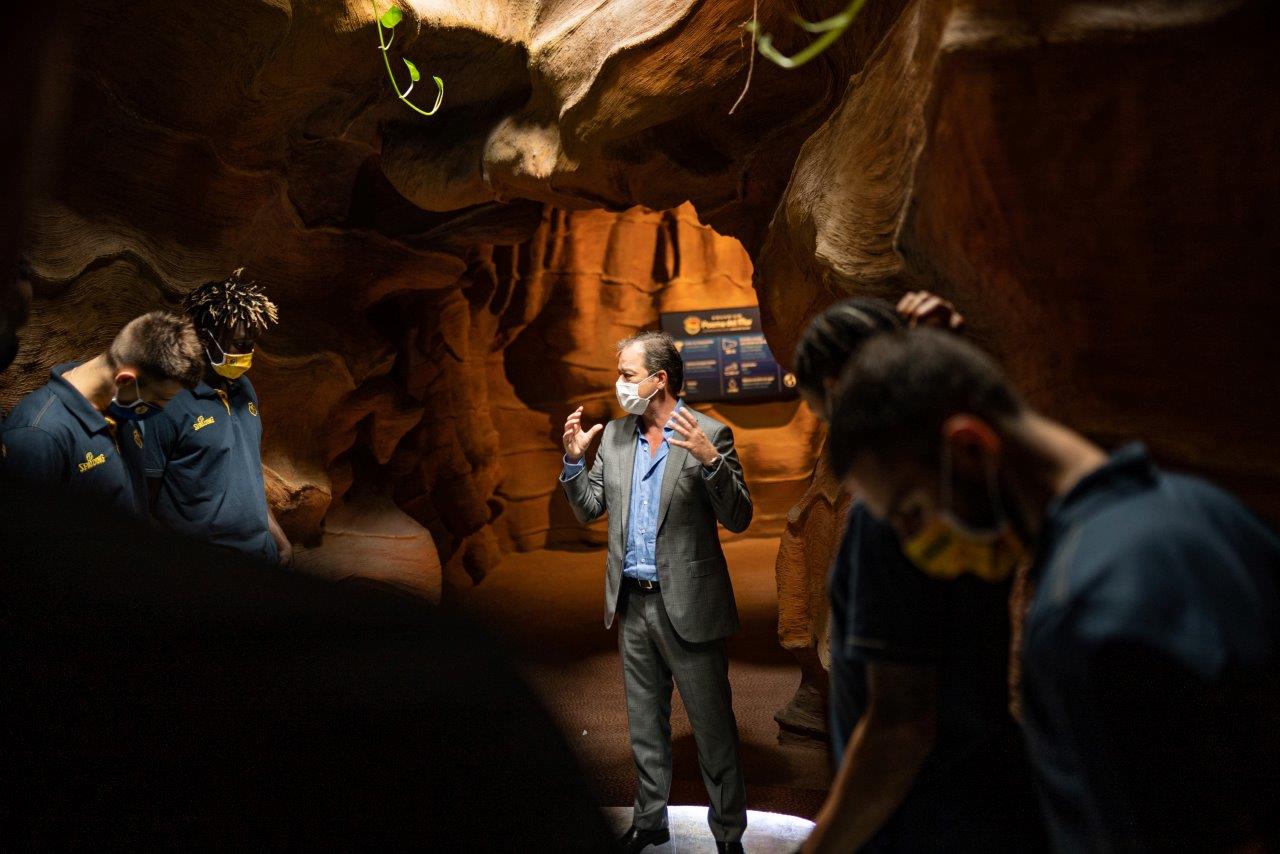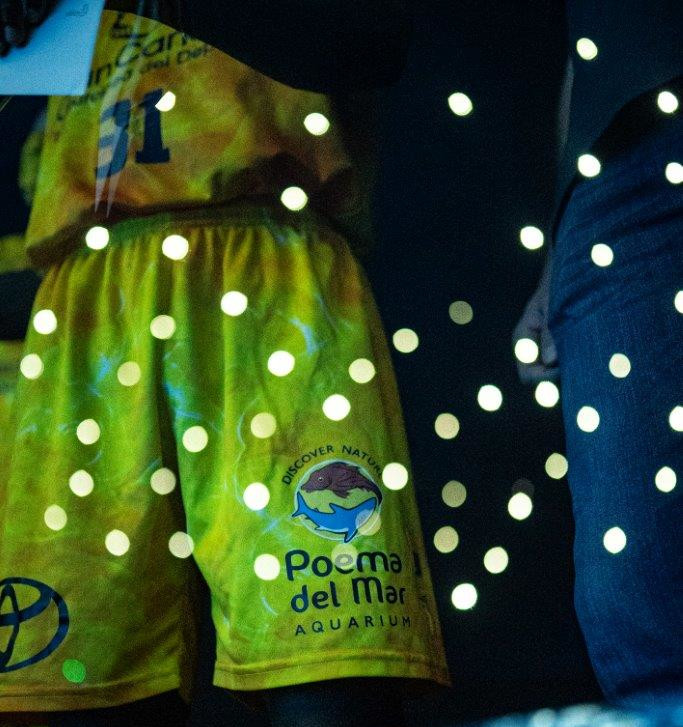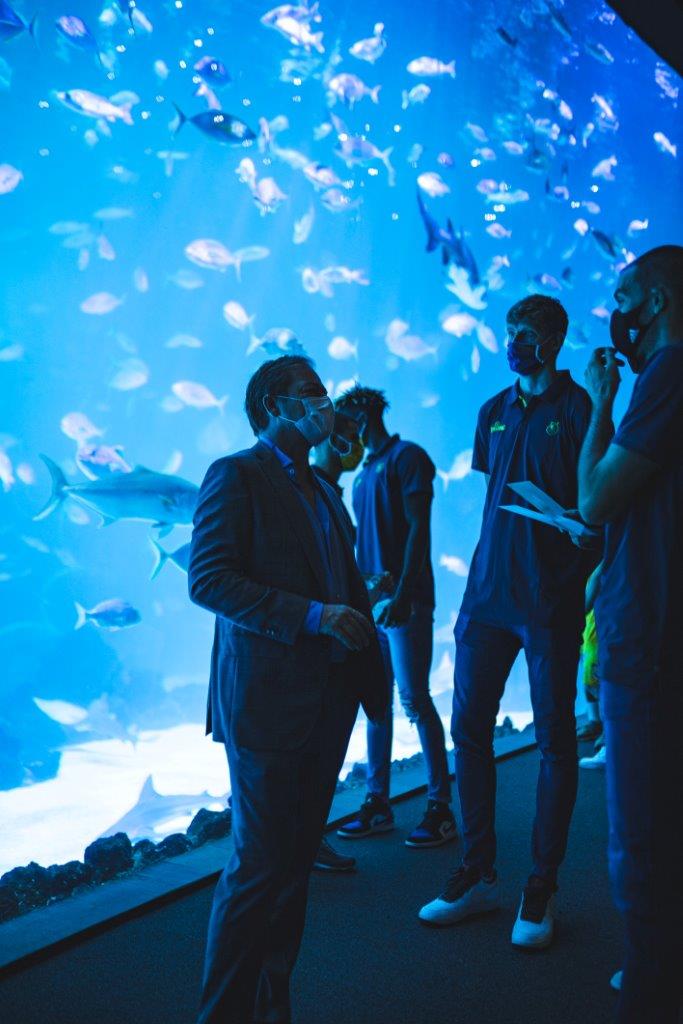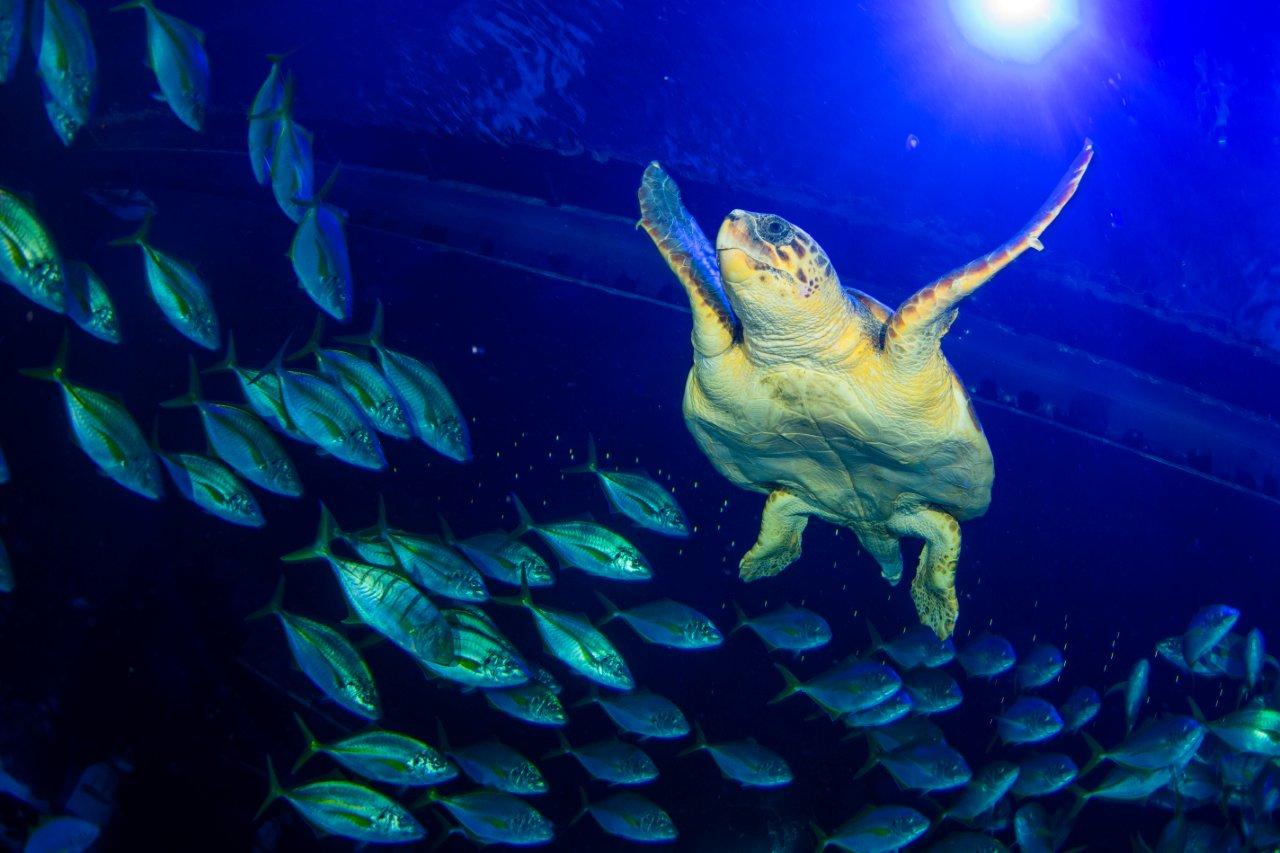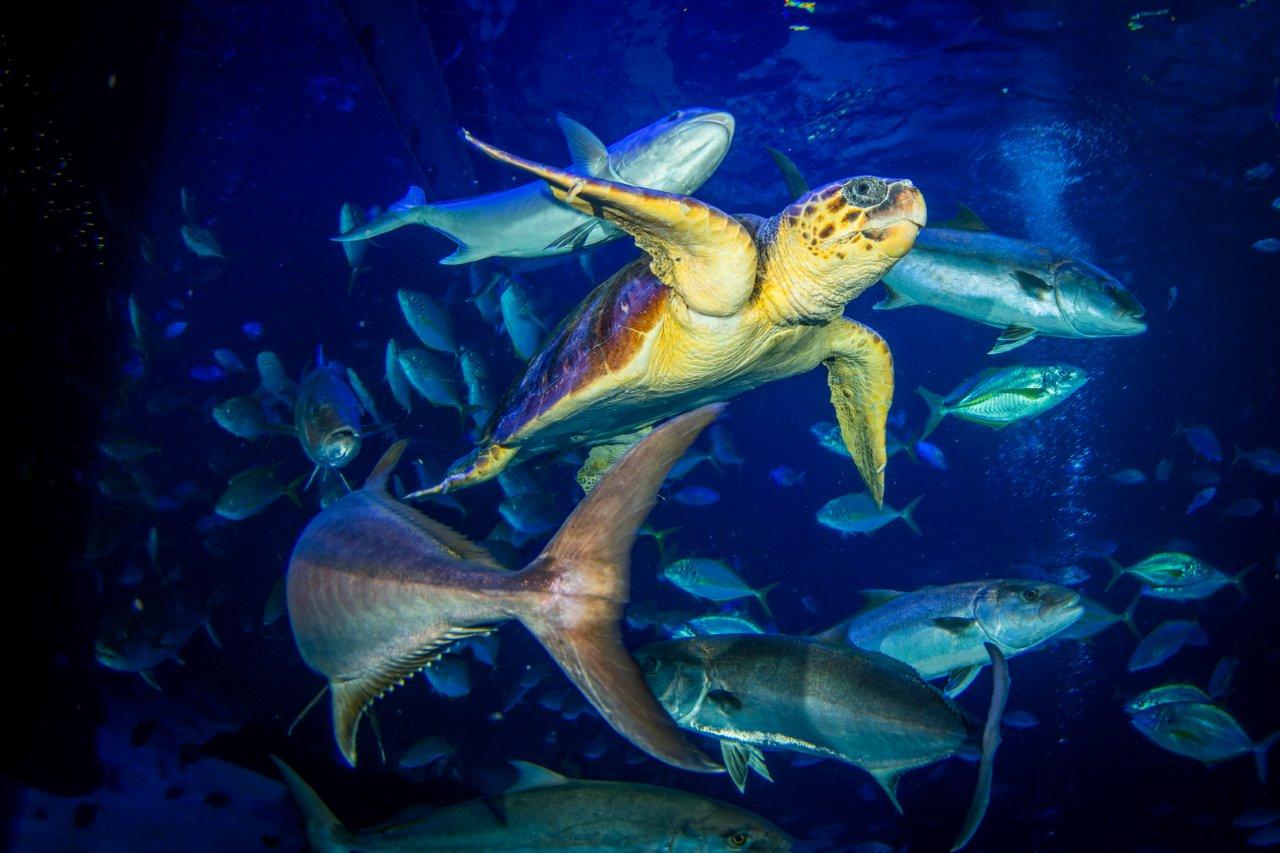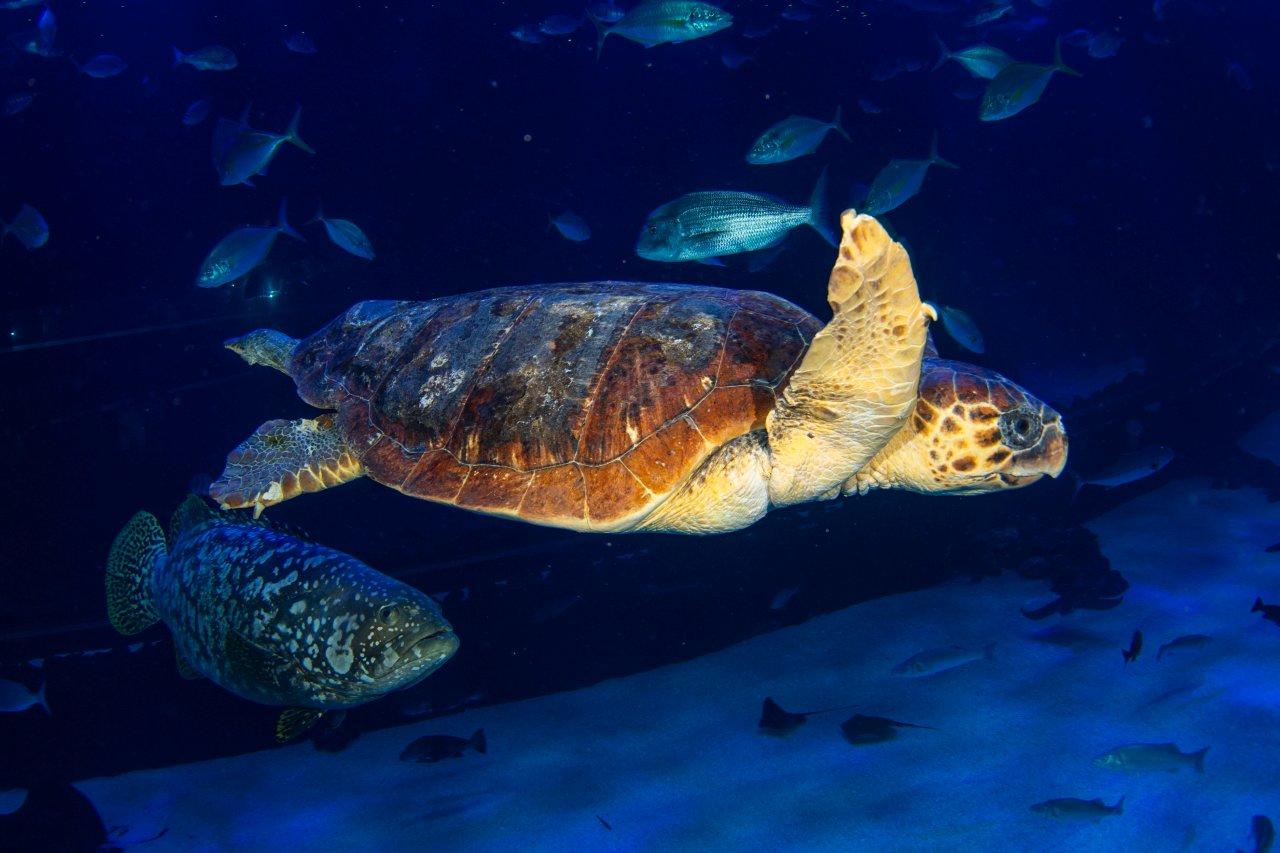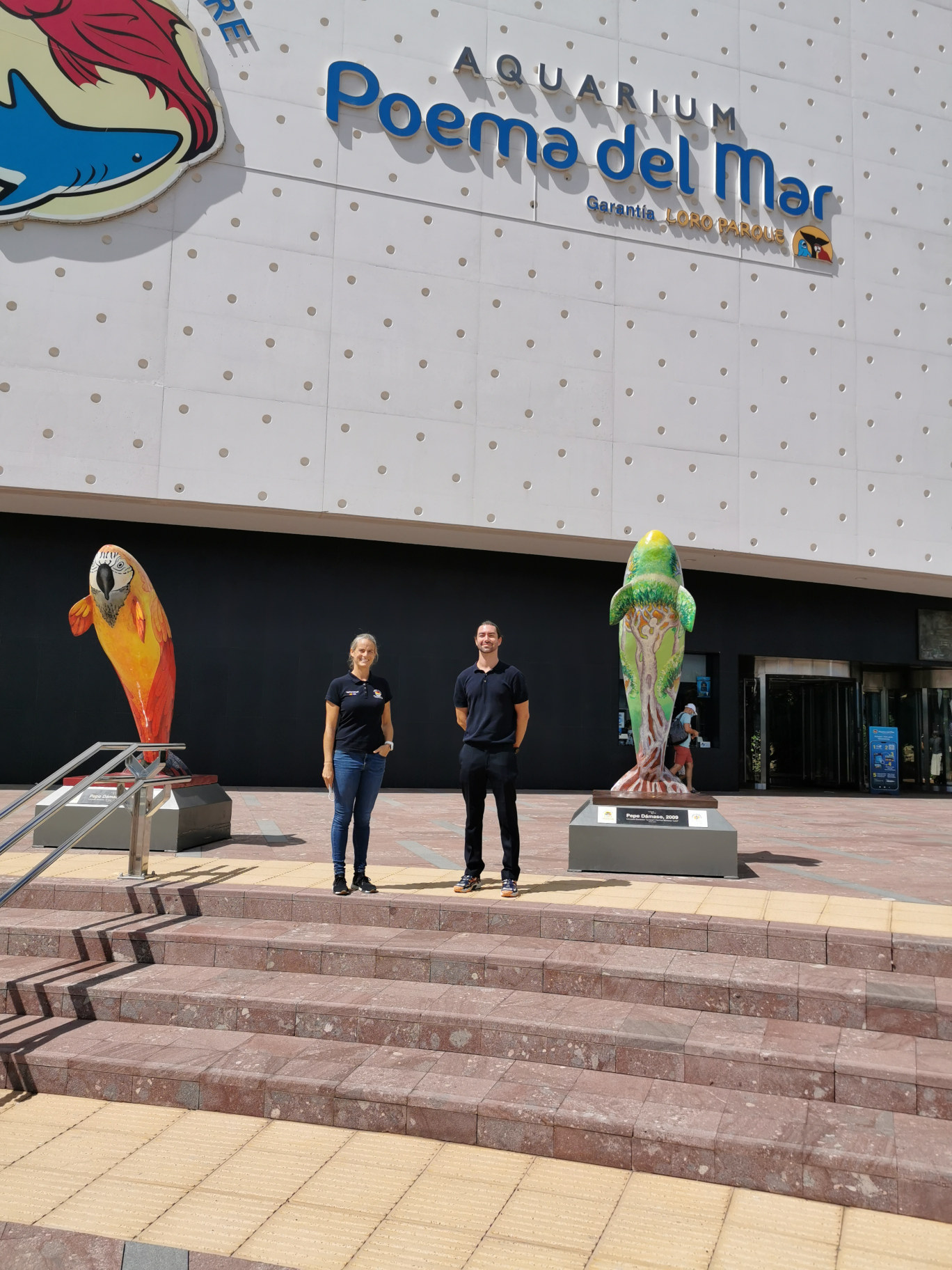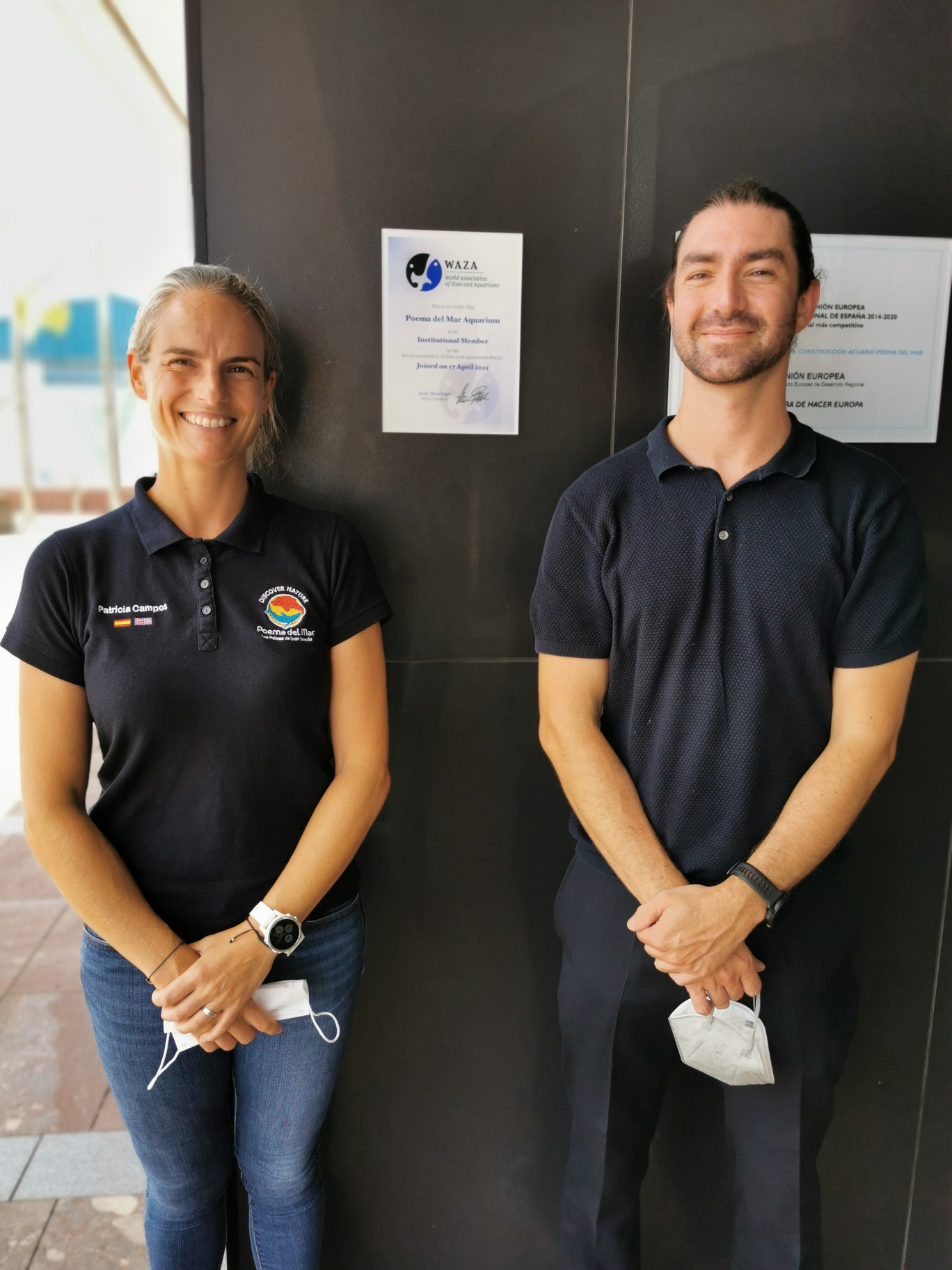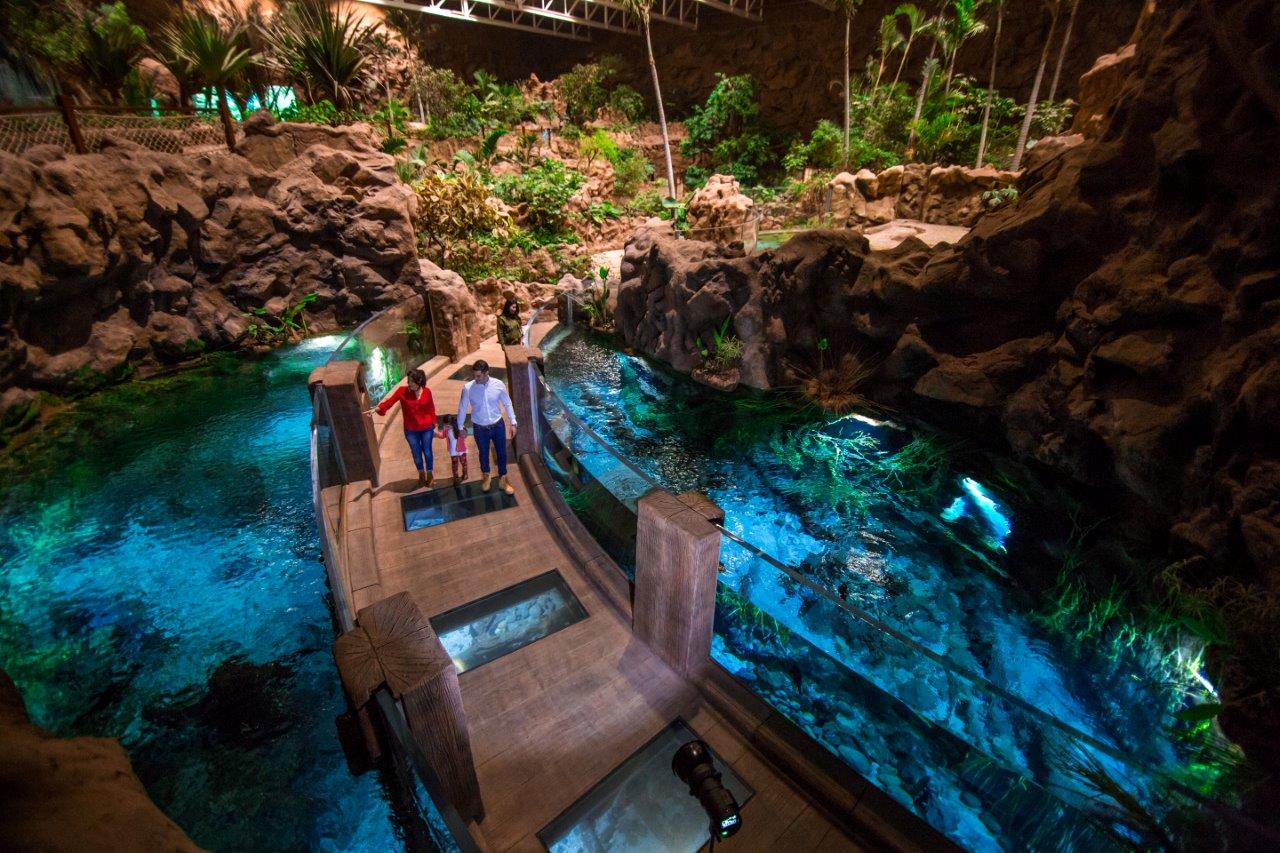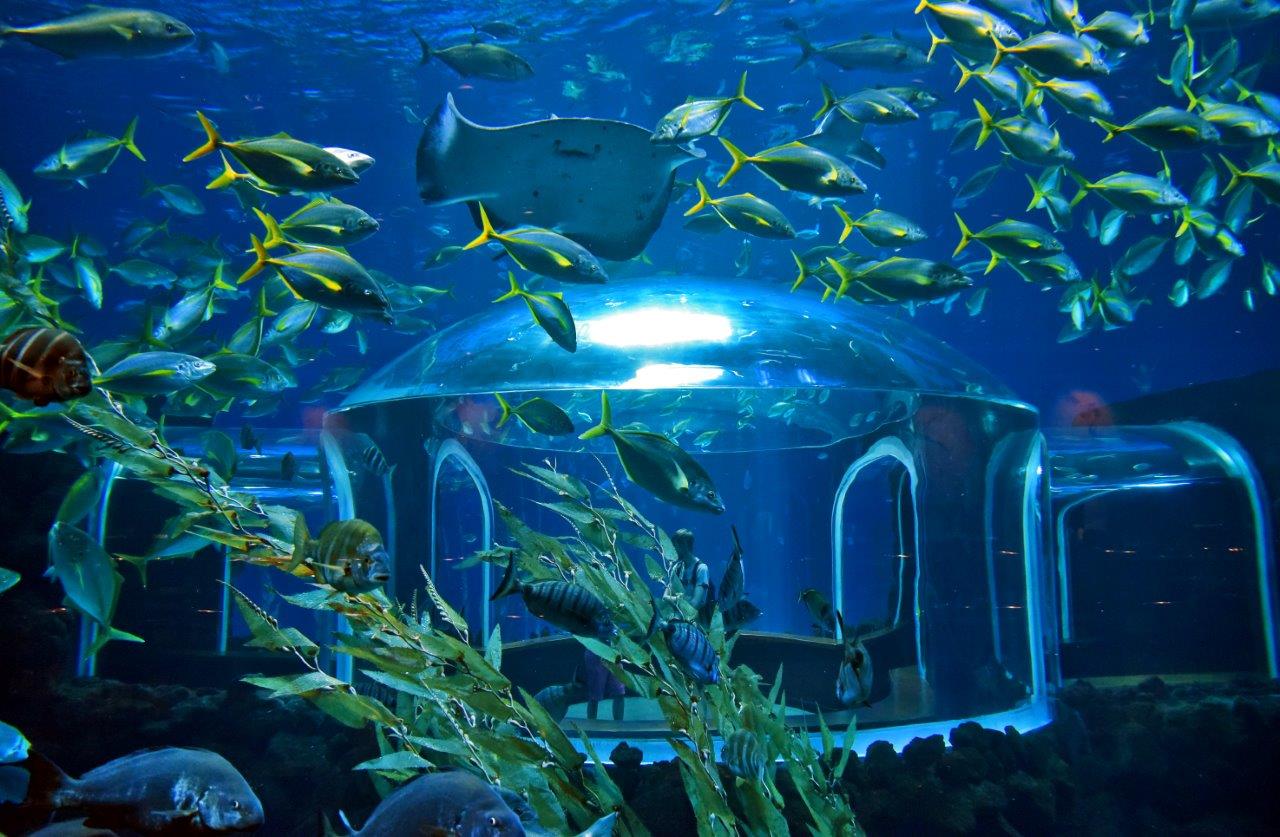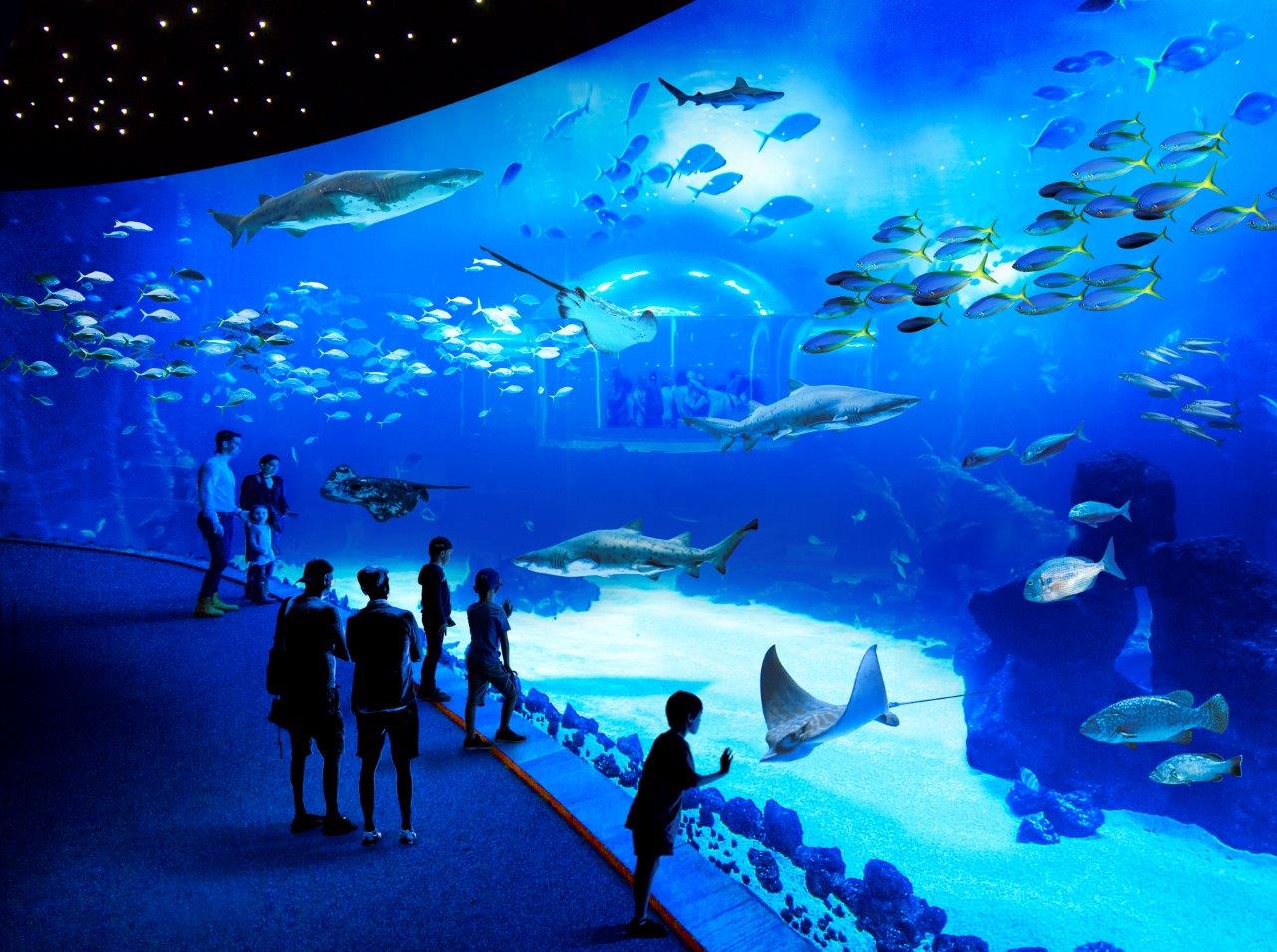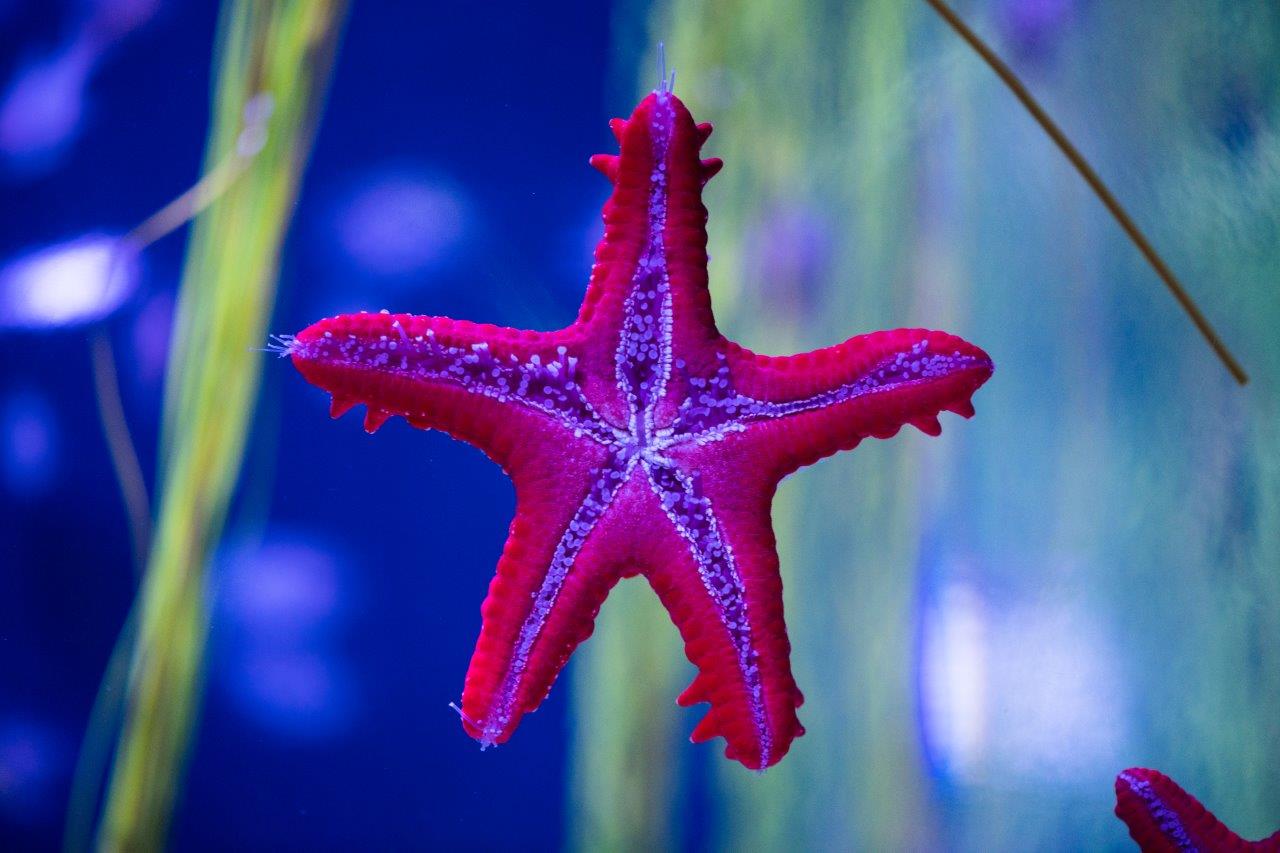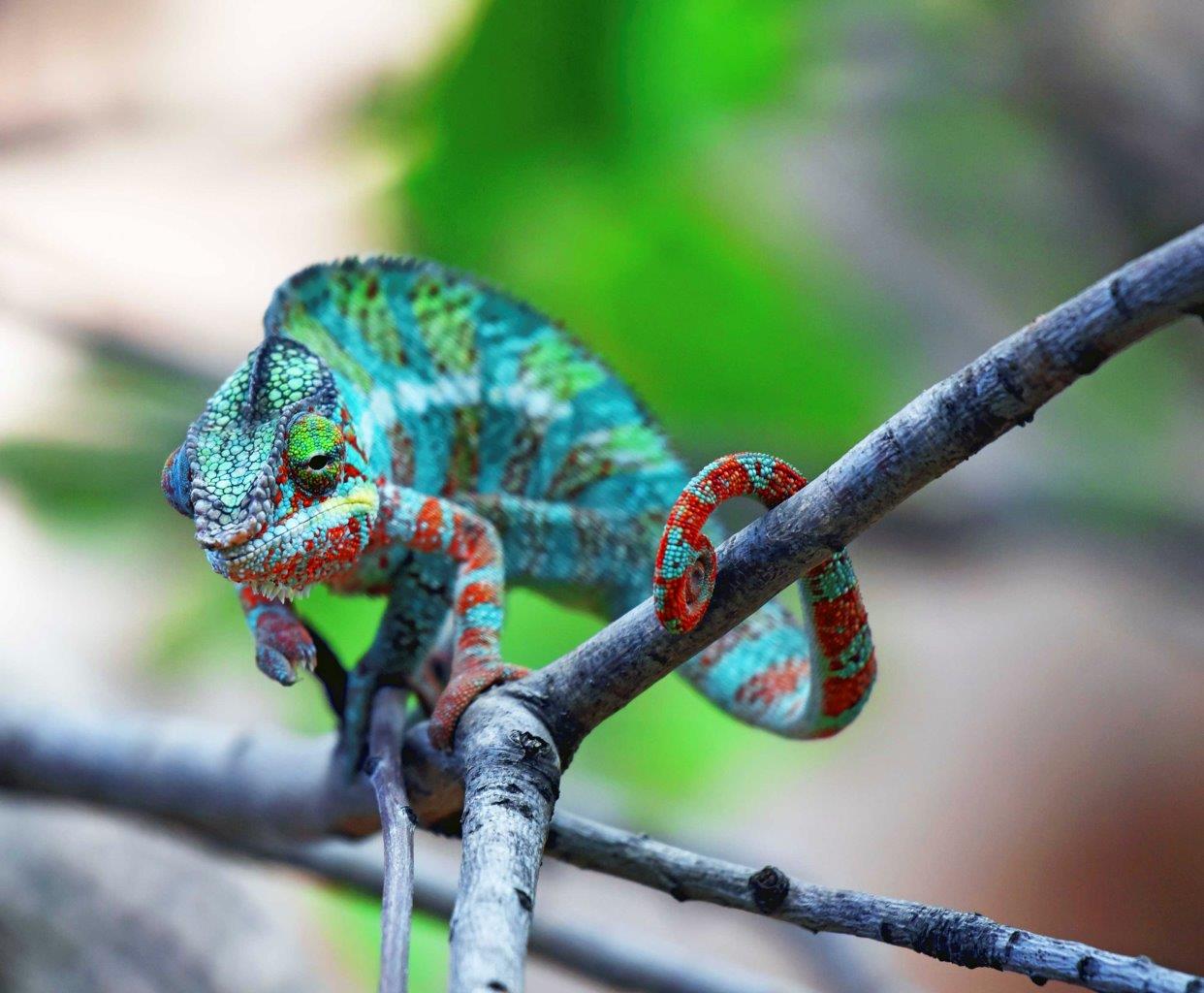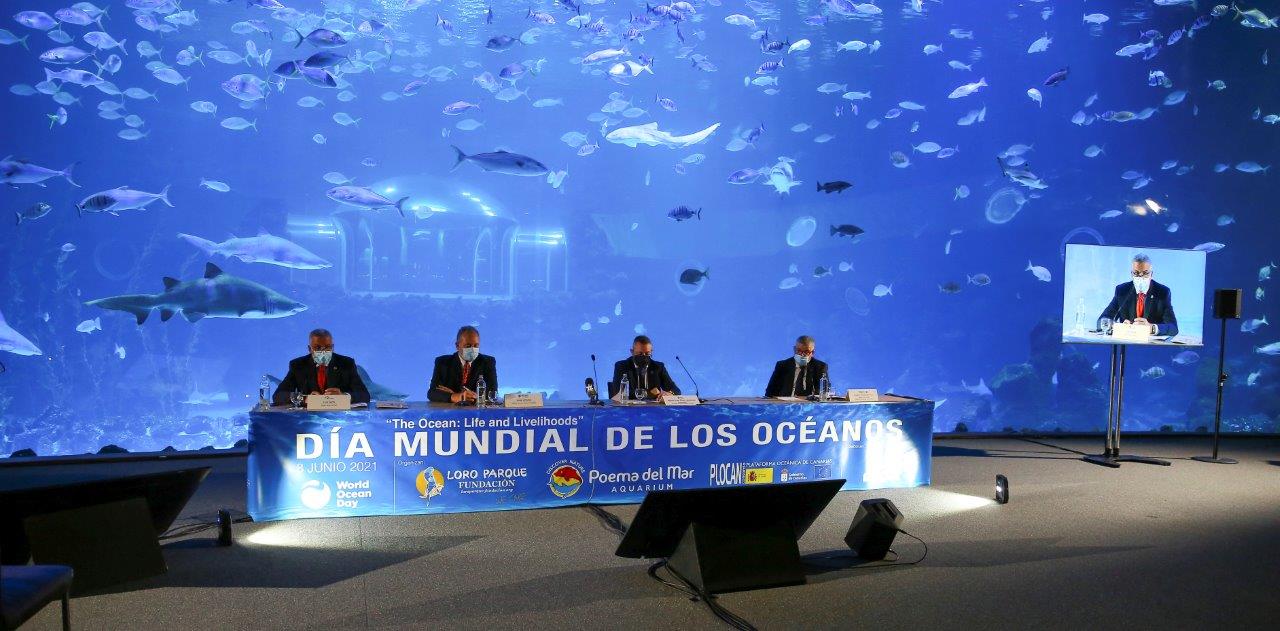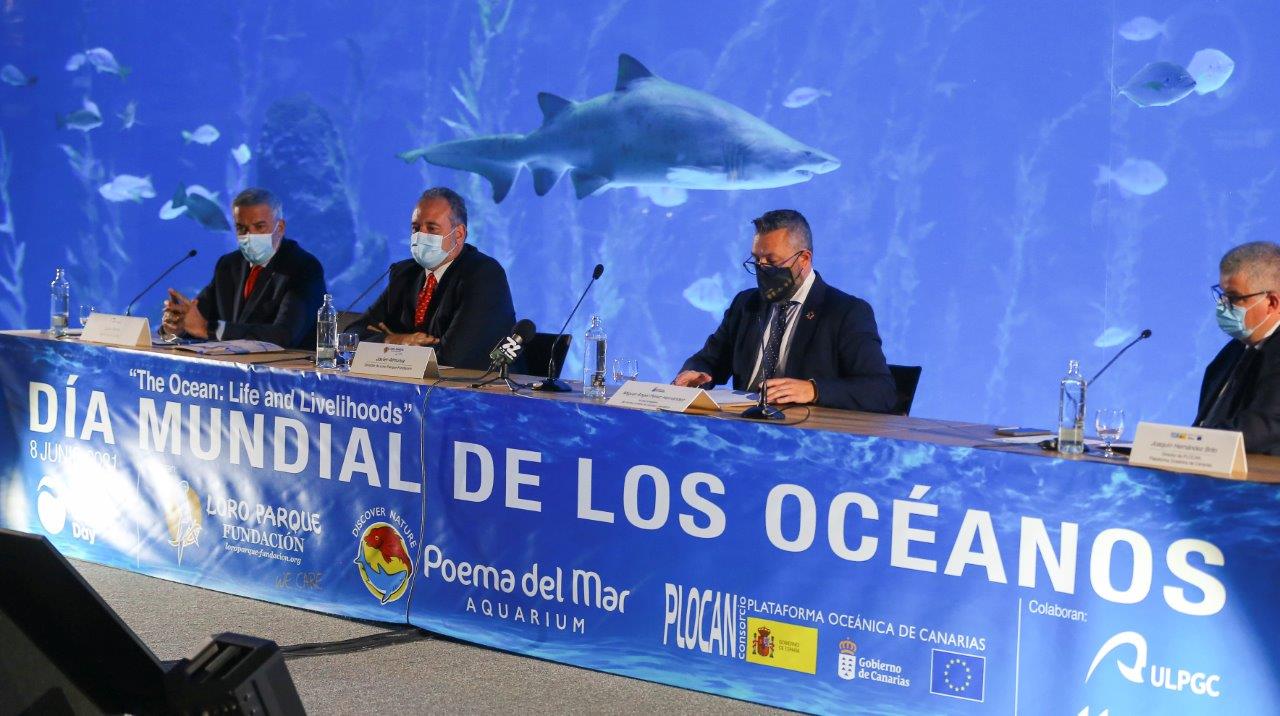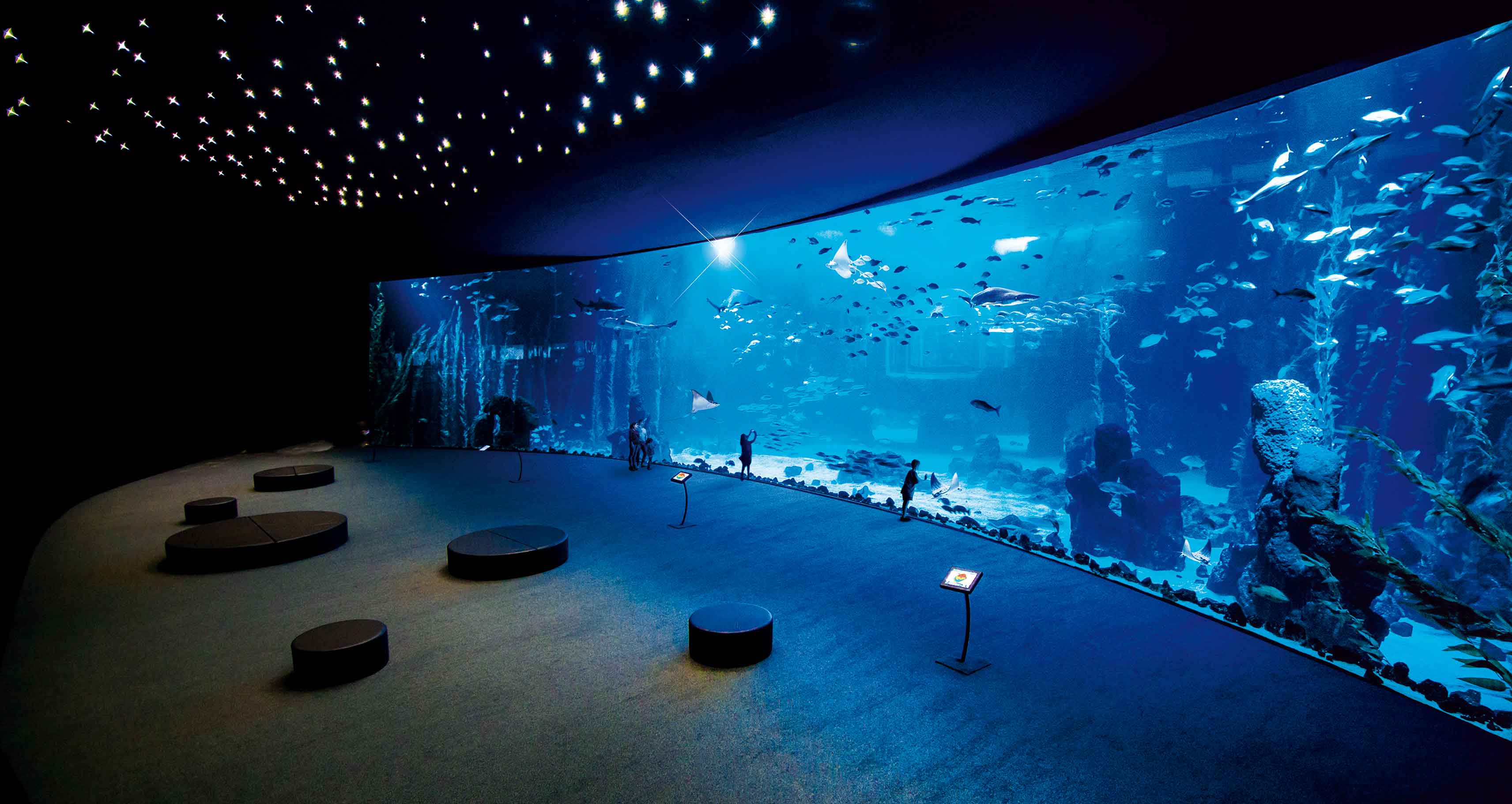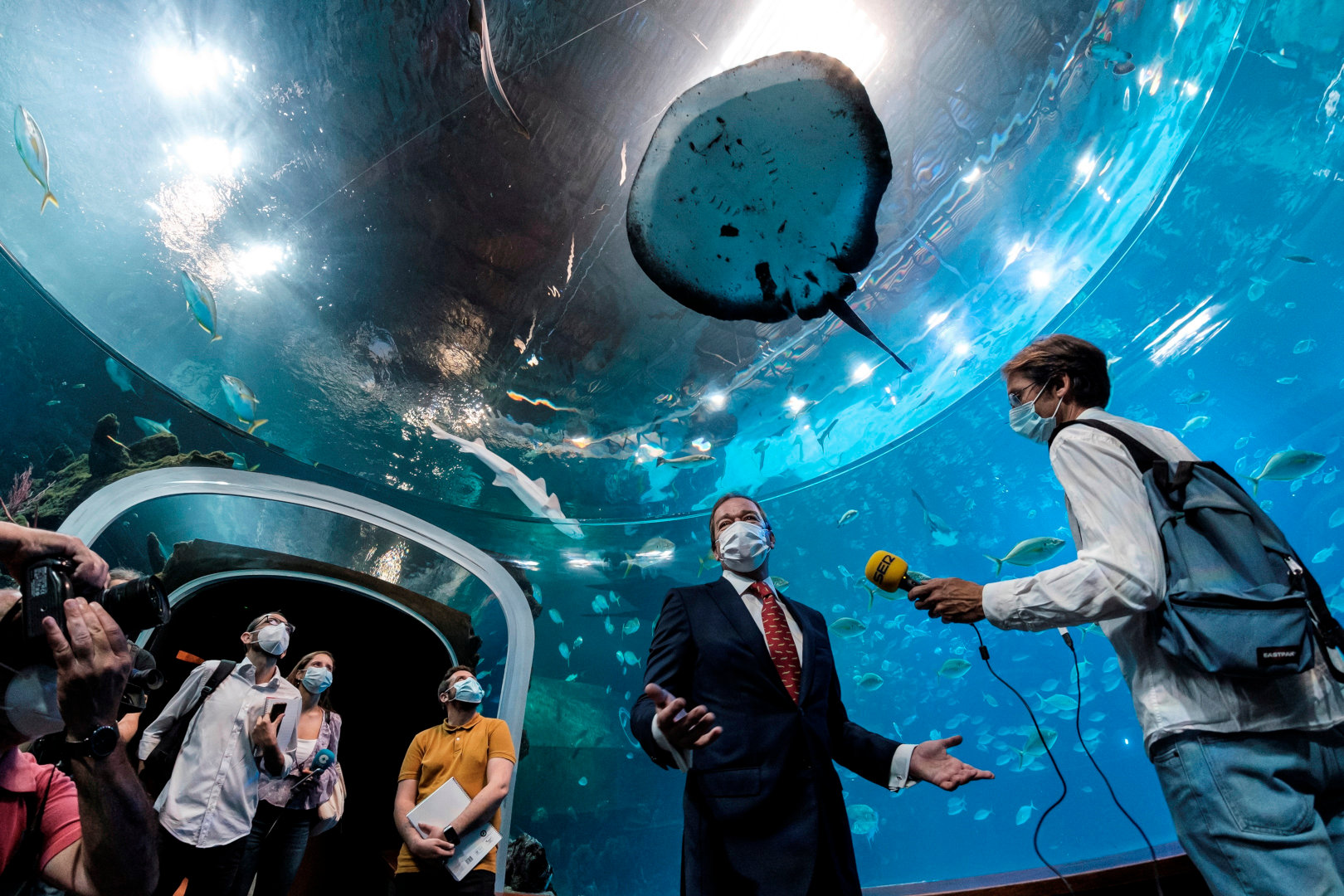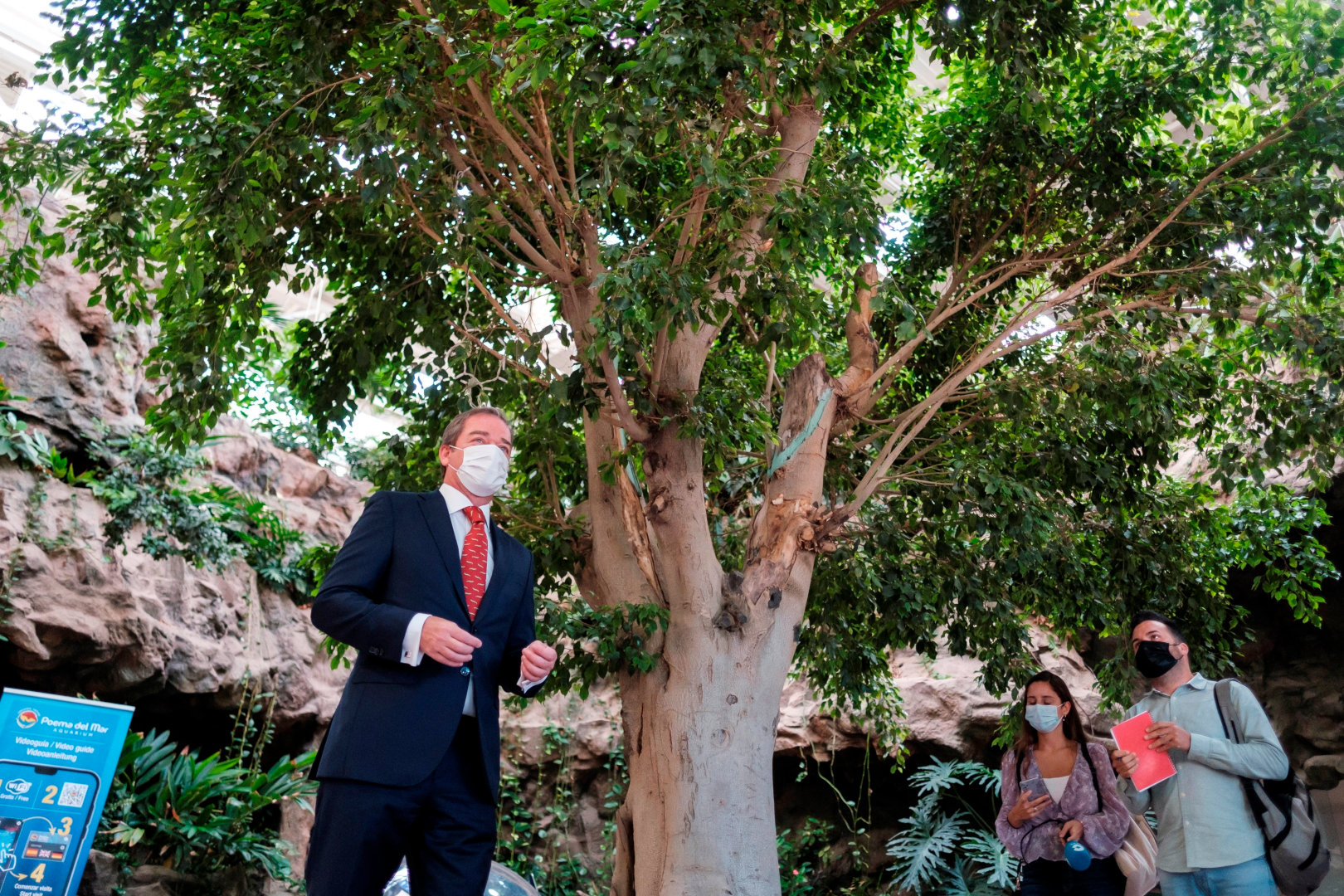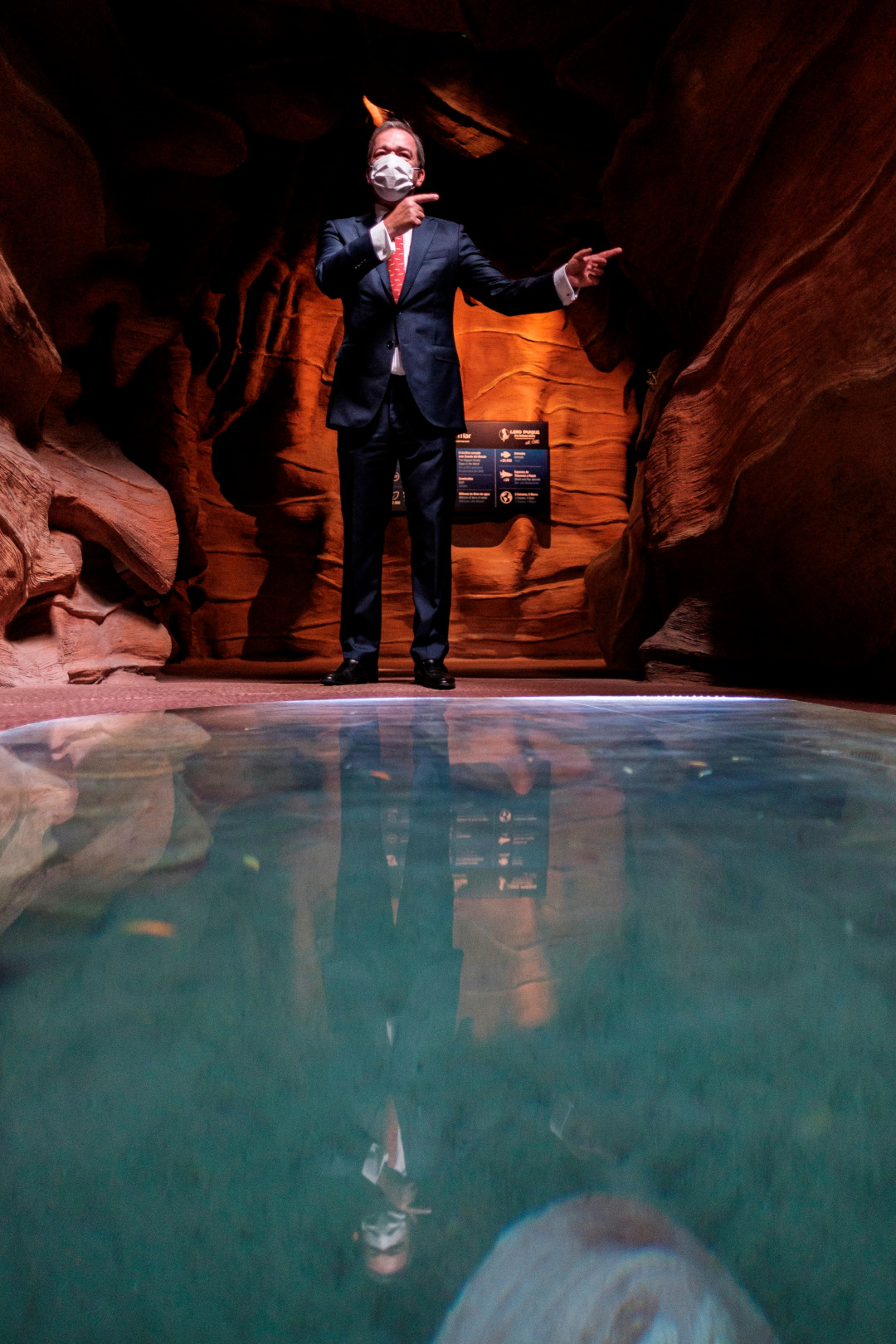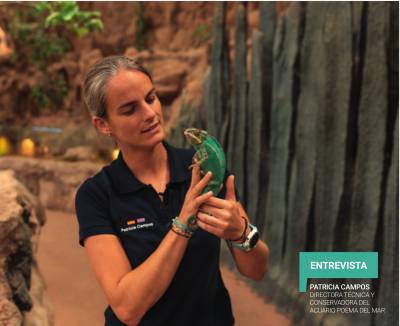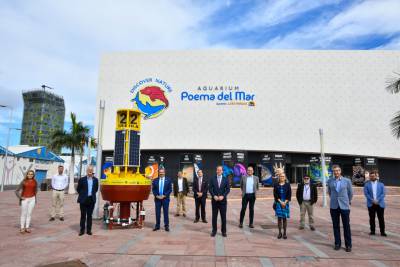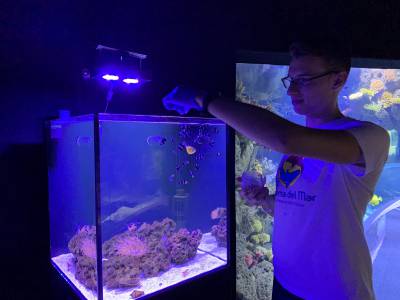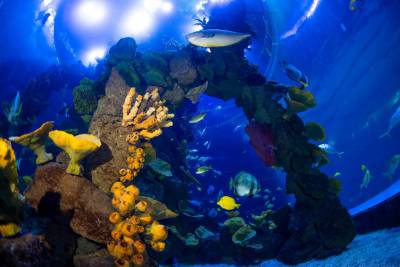On 15 March 2020, the famous Loro Parque Zoo in Puerto de la Cruz (Tenerife) closed its doors to the public for the first time since its opening on 17 December 1972. In its almost 50-year history, this well-known “animal embassy” had never closed and operated 365 days a year.
Considered to be the best zoo in the world, Loro Parque is the personal work of the entrepreneur Wolfgang Kiessling who, at the age of 83, is still “at the helm” of the Loro Parque Company as president, together with his son Christoph Kiessling, who is now vice-president. Coinciding with the sad reality of being closed to the public for a year, Wolfgang Kiessling gave the following interview in which he reviews the overall situation and looks to the future with hope.
Quietly sitting on the terrace of his permanent home in the heart of Loro Parque, Wolfgang Kiessling welcomes us with a mask on and now fully recovered from the COVID, which has also kept him on sick leave for almost three weeks. Fortunately, as he himself admits, with moderate symptoms that he has now left behind. It has been three weeks for him to reflect a lot, review the situation and think about the future.
For a man who has passed the coronavirus and at 83 years of age, always active, I see you serene and surrounded by your great work, the Loro Parque, which you yourself founded almost 50 years ago and which has now been closed for a year?
I’m not sure if I’m fully recovered, but I’ve been released and I feel very well. I want to go on and, above all, I want Loro Parque in Tenerife and the Poema del Mar aquarium in Gran Canaria to be able to reopen their doors and welcome the public. It has been very hard to see how these two great zoos, the Siam Park in the south of Tenerife, as well as our Hotel Botánico and Brunelli’s Steakhouse restaurant, both in Puerto de la Cruz, have had to remain closed. The most important thing is to know that, during all this time and as always, the animals have been perfectly cared for, with all the care that each one requires, with the total professionalism of the people who work with us, but, above all, with a lot of affection. My greatest wish is to continue transmitting and demonstrating to everyone the best information about Loro Parque and the certainty that here the animals do not suffer, but that their life is peaceful and happy. Some animalists and anti-zoo activists say that animals suffer in zoos, but this accusation is as false as it is unfair. Loro Parque is a well-managed zoo. At Loro Parque, all the professionals who work there are animal lovers and they are the first ones interested in making sure that their beloved animals, who they care for and who are under their supervision, are well and feel well. In our facilities, the wild animal, the exotic animal, has a refuge where its rights and interests are defended”.
Lately we have witnessed large fires around the world, affecting a large number of animal species.
It is incomprehensible that in the year 2021 we do not remember what happened in 2020, a year in which millions of hectares of forests, jungles and nature were affected by serious fires in the Amazon, in Africa, Indonesia and Australia. Thousands of species have been affected and millions of animals have been killed by fire. That is why we do not understand those activists who are against the only institutions in the world, which, like Loro Parque, defend the welfare of animals. In our case, we have just returned two more new Lear’s Macaws to La Catinga (Brazil). First of all, La Catinga sent us 4 Lear’s Macaws whose species was on the verge of extinction. After a lot of hard work and dedication, thanks to Loro Parque Fundación and the Loro Parque team, we have now bred more than 40 birds, and have returned a total of 8 to La Catinga, where they are now flying freely in their natural environment. This is a huge success. Similarly, vultures are being bred and released in Italy and Croatia. There is an impressive international movement to save species, breed them properly and then release, reintroduce and return them to their natural environment. However, this is not talked much about, just the bad things that some people think are happening.
I understand that the old idea of zoos has changed radically and nowadays is totally obsolete… You keep on breeding and giving life…
Nowadays all the great zoos of the world, such as, of course, both the Loro Parque in Tenerife and the Poema del Mar in Gran Canaria, are centres for the conservation of biodiversity, true embassies of the animal kingdom, where life is given, bred and recovered. The activists are… employees. They are ordinary people whose job is to harm zoos. Many of them are paid workers for organisations like M.C.O., which is subordinate to PETA (People for the Ethical Treatment of Animals), which in the United States alone receives more than $60 million in donations. Of that, only about $700,000 is given to the animals, but the rest goes to lawyers, salaries, rent, etc. The activists aim to eliminate all animals from all zoos. Consequently, for them, an animal that is born in a zoo is an animal that should not be born. But breeding is one of the animal’s rights and is protected by the European Zoos Directive. Loro Parque has in its five principles the right to breed animals. Recent news is that we have reintroduced two more Lear’s Macaws to their habitat in Brazil and 20 red-masked parakeets in Ecuador, but it must be said that without the help of Loro Parque, 10 species of parrots, including the Lear’s Macaw (Brazil), the grey-breasted parakeet (Brazil) and the yellow-eared conure (Colombia), would have been lost to the world and, of course, without our help, the orca Morgan would have died. We work for animal life and, based on this, we approach the care of all animals: with love, dedication, comprehension, involvement and the utmost professionalism.
What could they do, what should authorities at local, island, regional, even state level, do to help Loro Parque?
At the moment we have excellent relations with all the public administrations and those in charge of them. The most important thing would be to be sure for the coming years that a possible political change would not affect our situation, that our politicians in the Canary Islands would not enter into the dynamic of considering the removal of dolphins, orcas or gorillas. We have to understand that activists are using certain animals in each case to go against zoos: in some cases, it is for the dolphins, in others for the orangutans, or for the bears. In our case, Loro Parque is being attacked for its orcas. Every important zoo has to bear its “cross” and they are always paid activists, who earn well and are paid for this, who travel in good conditions and who have lawyers “á gogo”, they make life very difficult for us and do not contribute anything positive to society. That’s why we need more… We need all the real information to reach our people and we need people to pass it on in a positive way to others.
In 2022, Loro Parque will celebrate its 50th anniversary. It is currently the second most visited attraction in Tenerife, after the “father” Teide… and it all started with only 25 people and 150 parrots…
Indeed, so it was… Today, in total, Loro Parque and Poema del Mar professionally care for and look after around 40,000 animals with care, dedication and a lot of love, and these 40,000 animals serve as “ambassadors” for their fellow animals in the wild. At present, the entire Loro Parque company generates around 1,000 direct jobs and approximately 10,000 indirect jobs. Just the two companies Loro Parque and Poema del Mar provide around 500 direct jobs. We have calculated that the repercussion of all this means that around 1,230 companies in the Canary Islands have a workload thanks to the Loro Parque company. The aquatic mammals alone (dolphins, sea lions and orcas) eat 1,000 kilos of fish every day. In addition, in case of any possible contingency, we always keep a three-month stock of food for all the animals.
Knowing all this, one can imagine what is behind Loro Parque and Poema del Mar, what it costs to maintain them and all the work that is involved in caring for and defending these animals?
Look, a long time ago, until 1992, I had a small boat and I used to go fishing at weekends. You have no idea, but since the first aquarium was installed in Loro Parque, I stopped fishing almost immediately, because you get to like and love the fish. And this is what a park like ours does. Loro Parque provokes love and sympathy between the animals and the visitors thanks to their movements, their smell, their expressions and the sensations and feelings they transmit with their faces and bodies. I always say that those who criticise the zoo today should look back on the visits they made as a child, accompanied by their parents or grandparents to a zoo, and then one can see how much sympathy they have for the animals. It is impressive to see a child give a banana to an elephant and see how the elephant with its trunk carefully takes the banana from the child’s little hand. It creates understanding, friendship and affection.
In addition, Loro Parque and its professionals, through the Loro Parque Fundación, have spent years developing conservation projects all over the world, which have maintained, even with the doors closed and without visitors
Indeed, we have the Loro Parque Fundación, a non-profit organisation that we founded in 1994 and to which we have donated more than 23 million dollars to develop more than 200 conservation projects on 5 continents. This past year and more than ever, despite the pandemic and being closed to the public, Loro Parque has donated a record annual amount of 1.3 million dollars to the Foundation to continue its work. We currently have 53 active projects in many countries around the world, not forgetting the Canary Islands, where, for example, the CanBIO project, co-financed by the Government of the Canary Islands, in collaboration with the two Canary Islands universities, Loro Parque and Poema del Mar, is still ongoing. The aim of CanBIO is to study, research and control climate change, the increase in noise and pollution in the sea around our islands, with the idea of extending the project to the whole of Macaronesia in the near future.

Perhaps it was after the arrival of the dolphins at Loro Parque that this idea for the Loro Parque Fundación was born…
That was in 1987 and a year later we were visited by a group of young English students, who came to the Canary Islands to observe the cetaceans in the south of Tenerife. At the same time, the researcher Petra Deimer, the greatest international cetacean advocate and advisor to the German government, came and joined us from Germany. She visited our facilities and said in front of the media that ‘if all dolphins were kept and cared for like in Loro Parque, I would live in peace’. She pointed out to me in 1988 that the Canary Islands should be declared a protected area for aquatic mammals, and extended this area from the Azores to the Cape Verde Islands. She wanted the whole of Macaronesia to be declared a great sanctuary of protection for them, and I took up that idea and took it to many authorities, but in the end, nobody listened to me. It was a first and great “green idea” for the protection of our seas in the 80s and 90s, which, in fact, was already a reality and already had all the protection, because here, no Canarian fisherman fishes dolphins or whales. We are still waiting for this declaration to be officially declared in an agreement, signed by all the governments involved. Imagine if Macaronesia were declared as such. No fishing company would be able to hunt marine mammals in these waters and it would be a unique area in the world and a special attraction for scientists and animal-loving tourists.
Finally, I have heard, and I think it is remarkable, that Loro Parque is the first zoo in the world that is energetically self-sufficient?
Indeed, all the electricity we use is being produced by us from renewable and clean energy systems, such as the wind turbine we have at the Salinetas wind farm in Telde (Gran Canaria) or the photovoltaic panels we have at our other installations. We produce around 9 megawatts/hour, more than our parks need. Our idea and our goal are for the entire Loro Parque Company to be totally self-sufficient and have zero emissions.
We talk about what the public administrations and responsible politicians, the authorities, should do, but… what can the public, the visitors to Loro Parque, locals or foreigners, do?
We have not stopped working professionally, taking care of and pampering all our animals during the past year in which we have been closed. The only thing we wish and hope now is to open very soon, as soon as possible, and to meet again with our visitors from the Canary Islands, from all over Spain and abroad. We would like them to visit us and help us to get out of this hard, costly and sad phase. And we would like all our visitors, but especially the local people, to feel proud of Loro Parque and Poema del Mar. They could help us by reading all our information brochures and learning about our true and happy reality and pass it on. And in order to fight against the anti-zoo activists, it would be a great help and an honour for us if they would become our best ambassadors, both for Loro Parque and Poema del Mar. Together, they could create a huge network to transmit positive information and not negative messages”.
Last but not least. Despite the pandemic and being closed, life has gone on at Loro Parque and Poema del Mar, but when will they reopen?
We have not stopped working and continue to take professional care of our animals. We are eager to open and welcome our visitors and friends, but we will do so only when it is safe to do so. We are currently only welcoming visits from limited groups on what we have called the ‘Exclusive Day Tour’, an initiative whereby you can visit the Park behind closed doors in small groups, accompanied by a guide, and enjoy a delicious lunch at Brunelli’s Steakhouse restaurant. This option continues to be available from Thursday to Monday from 10:00 to 17:15. The Loro Parque Company, with our two animal embassies, Loro Parque and Poema del Mar, as well as Siam Park, the Hotel Botánico and Brunelli’s Steakhouse restaurant, we continue collaborating so that Tenerife and the Canary Islands remain the best tourist destination in Europe and one of the best in the world.

